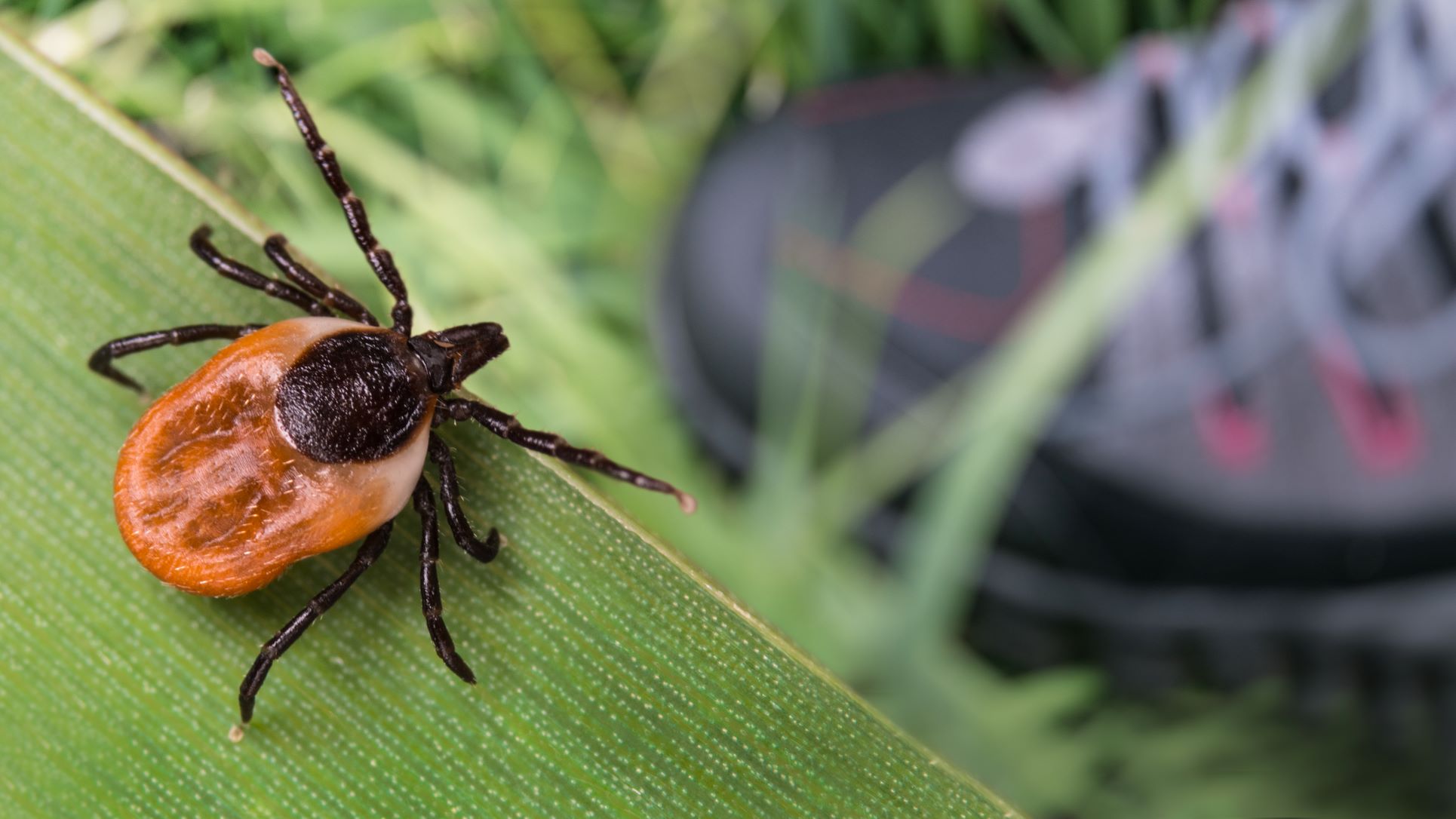
Avoiding tick bites
Avoiding ticks starts before you leave the house and continues after you arrive back home. The sneaky arachnids like to travel up the body and find any crease or crevice to latch onto. Unfortunately, while it doesn’t happen that often, their bite can transfer dangerous diseases.
Ticks live on the ground and migrate up a host before biting. Typically, a tick will travel long distances by riding on a host, so you can encounter ticks in your yard or walking in any tall grass. However, you are more likely to encounter ticks in fields or wooded areas with tall foliage.
Experiencing symptoms from a tick bite?
While Lyme disease is the most common and well-known tick-borne disease in the Midwest, tick bites also can cause:
- Anaplasmosis (Upper Midwest)
- Babesiosis (Northeast and upper Midwest)
- Borrelia Mayonii
- Borrelia Miyamotoi Disease
- Bourbon Virus
- Heartland Virus
- Rocky Mountain Spotted Fever
- Tularemia
If you travel, go to the Centers for Disease Control and Prevention website and learn about other tick-borne diseases and the areas affected.
Before venturing into your garden or onto the hiking trail, it is important to keep safety top of mind. Ashley Lisek, an advanced practice nurse with OSF Medical Group, discusses safety tips and prevention.
Before you head out
- Pre-treat your clothes and gear with a repellent that contains 0.5% permethrin. Read the manufacturer’s instructions, apply the repellent in a well-ventilated area and hang your clothing up to dry.
- Dress the part – pre-treated long-sleeve shirt, pants and closed shoes – preferably boots.
- For your skin, use a recommend Environmental Protection Agency (EPA)-registered insect repellent. Make sure to read the instructions, especially if applying to a child under the age of 3.
When you are outside
- Tuck your pants into your socks and your shirt into your belt.
- Walk in the center of hiking trails, avoiding tall grass and vines.
- Stop and frequently check yourself. If you are with someone, use the buddy system to check each other over.
After you get home
- Shower within a couple of hours from coming indoors. This can help reduce your risk for Lyme disease, wash away any ticks that haven’t latched on and give you a chance to check yourself over.
- Check your body over in the mirror, make sure there is nothing stuck to you – because sometimes you don’t even know they latch on.
- Check your gear – backpacks, tents, chairs, etc.
- Check your pets.
- Wash your clothes with hot water and dry immediately to kill any ticks hiding on your clothing.
Symptoms of a bite
Common symptoms of a tick-related illness include fever and chills, aches and pains or a rash. The most important spots to check for ticks include: under the arms, in and around the ears, inside the belly button, back of the knees, in and around the hair, between the legs and around the waist.
“If you do see a tick on you, you should seek urgent treatment so that we can make sure you get it out. A lot of times, people will look online at how to remove a tick and then put things on it that are not actually supposed to be on it or won’t help remove a tick that’s on you. So, if you have a tick on you, or you think you have a tick bite or any kind of bullseye rash starts to develop where you think you could have been bitten by a tick, I recommend you seek urgent treatment by a medical professional,” Ashley said.
To find urgent care near you, go to www.osfhealthcare.org. If you or a loved one are experiencing a medical emergency caused by a bite or sting – regardless of being caused by a mosquito, bee, wasp, tick or even a spider – go to your nearest emergency room or call 9-1-1.